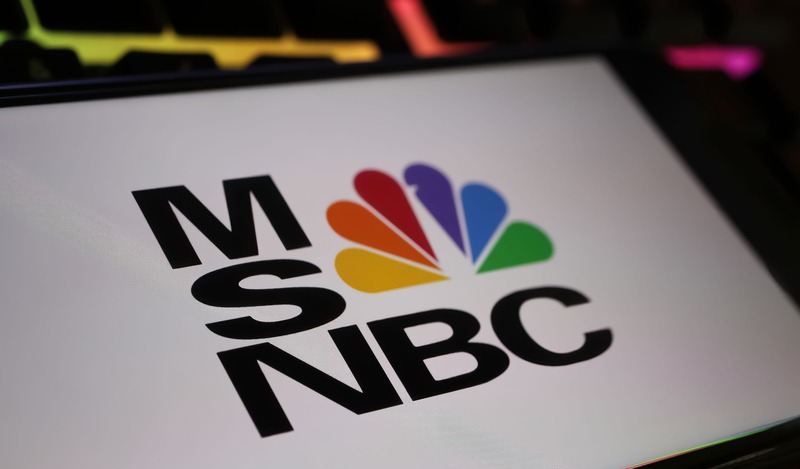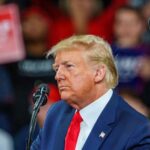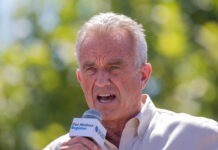FBI Director Kash Patel has filed a defamation lawsuit against MSNBC columnist Frank Figliuzzi over false claims that the federal law enforcement chief spends more time at nightclubs than at his office. The lawsuit, filed June 2 in Texas, accuses Figliuzzi of fabricating statements about Patel’s alleged nightclub activities during a May 2 broadcast of MSNBC’s Morning Joe.
According to court documents, Figliuzzi claimed on the program that Patel had reportedly been visible at nightclubs far more than he had been on the seventh floor of the Hoover Building, which houses FBI headquarters in Washington, D.C. The lawsuit alleges that Figliuzzi knew this statement was false when he made it.
Patel’s attorneys contend that since becoming FBI Director, Patel has not spent a single minute inside a nightclub. The legal filing describes Figliuzzi’s comments as a maliciously false and defamatory statement designed to discredit the FBI chief. The suit claims there was no basis for the fabrication and that Figliuzzi’s use of the word “reportedly” was itself fabricated, as he did not rely on reporting from any other person.
During the May 2 Morning Joe segment, Figliuzzi also suggested that daily briefings to Patel had been changed from every day to twice weekly. The former FBI assistant director for counterintelligence characterized Patel’s alleged absence from headquarters as both a blessing and a curse, citing the director’s lack of experience. Figliuzzi indicated that the situation created chaos within the organization, with employees uncertain about daily operations.
MSNBC was forced to retract Figliuzzi’s claim on May 5, just days after the original broadcast. Morning Joe co-host Jonathan Lemire acknowledged the error, stating that Figliuzzi had made a misstatement and that the network had not verified the nightclub claim. The retraction came without an apology from the network.
The lawsuit alleges that Figliuzzi made up the story to advance his own name recognition at Patel’s expense. Court documents indicate that Figliuzzi harbors a clear animus toward the FBI Director, having previously written critical assessments of Patel’s qualifications. In earlier columns, Figliuzzi described Patel as one of the most ill-suited Cabinet nominees of all time and suggested he lacked the traits of fidelity, bravery and integrity that define the FBI’s motto.
Figliuzzi, a 25-year veteran of the FBI who served as assistant director for counterintelligence, now works as a senior national security and intelligence analyst for NBC News and MSNBC. During his television appearance, he claimed that reports suggested Patel frequently splits his time between the Washington office and his home in Las Vegas, though he provided no verification for these assertions.
FBI spokesperson Ben Williamson responded to the original claims on social media, calling them bogus and noting that he sees Patel at headquarters every day. The spokesperson’s comments directly contradicted Figliuzzi’s unsubstantiated allegations about the director’s whereabouts and work habits.
This defamation lawsuit represents part of a broader pattern of legal action by Patel against media organizations. Court records show that Patel has filed at least six lawsuits since 2019, including multiple defamation cases against news outlets. Most of these cases have been dismissed or withdrawn. In January, a Virginia appeals court affirmed the dismissal of Patel’s defamation suit against CNN, ruling that he failed to overcome constitutional standards protecting the challenged statements.
Patel’s appointment as FBI Director has drawn significant scrutiny due to his limited senior law enforcement experience and his history of promoting controversial political theories. He began his career as a public defender and served as a national security prosecutor in the Department of Justice before working as an advisor on national security and senior counsel for the House Permanent Select Committee on Intelligence.
The current lawsuit seeks financial damages and attorney fees from Figliuzzi. It also requests injunctive relief to prevent agents who improperly investigated Patel from being involved in future proceedings against him, as well as the destruction of records obtained through previous government subpoenas. Representatives for Patel declined to comment on the litigation, while MSNBC has not responded to requests for comment regarding the lawsuit.
The case highlights ongoing tensions between Patel and certain media figures who have criticized his qualifications for leading the nation’s premier law enforcement agency.











